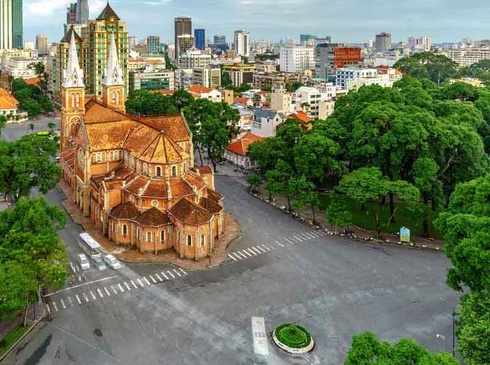Understanding Vietnam Confucianism: Its History, Beliefs, and Significance
Vietnam boasts a rich cultural heritage, and one of its significant influences is Confucianism. Confucianism is not just a religion but also a philosophy and a way of life. For centuries, the Vietnamese have followed Confucianism teachings, inspiring positive influences in government, education, and social norms. However, many people still find it challenging to understand this ancient philosophy. In this blog post, we’ll explore Vietnam Confucianism, its history, beliefs, and its significance in Vietnamese daily life.
.jpg)
History
Confucianism originated in China and gradually spread to neighboring countries, including Vietnam. Confucianism principles first arrived in Vietnam in the first century BC, though it was not until the sixteenth century that it gained prominence in Vietnam. Confucianism became popular during the reign of the Tran dynasty in the 13th century, and the Le dynasty later adopted it as the state doctrine, replacing the former Buddhist religion. Confucianism has been influential in Vietnam’s history, guiding its education and civil service examinations and ruling principles until the 19th century.
Beliefs
Confucianism is a system of teachings and beliefs that focuses on the importance of virtuous conduct and character. It espouses the virtues of respect for others, duty to society, and hierarchy, among others. The core belief of Confucianism is the concept of “li,” which encompasses morals, ethics, and social behavior. Confucianism teaches that the way to achieve balance and harmony is by adhering to strict social hierarchies and norms. Confucianism places a high emphasis on morality, education, ancestor worship, and respect for authority.

Significance
Confucianism greatly influenced Vietnamese culture, tradition, and society. For one, it facilitated social harmony and helped Vietnam establish a hierarchical social system. Furthermore, Confucianism was integral to Vietnam's bureaucracy and the country’s education system. Confucianism values were taught in schools, and the ruling body selected officials based on their knowledge of the system. In Vietnam, Confucianism principles continue to be relevant in moral and ethical teaching, education, and everyday interactions.
Confucianism Today
Many younger generations have moved away from Confucianism teachings in modern society in Vietnam. Although Confucianism still shapes the Vietnamese society and thought, the younger generations are increasingly embracing Western-style individualism and ideals, including materialism and consumerism. Despite this trend, Confucianism still has a significant impact on philosophy, rituals, literature, and traditional Vietnamese values. It's not uncommon to see Confucian ideas such as filial piety in everyday interactions in Vietnam.







